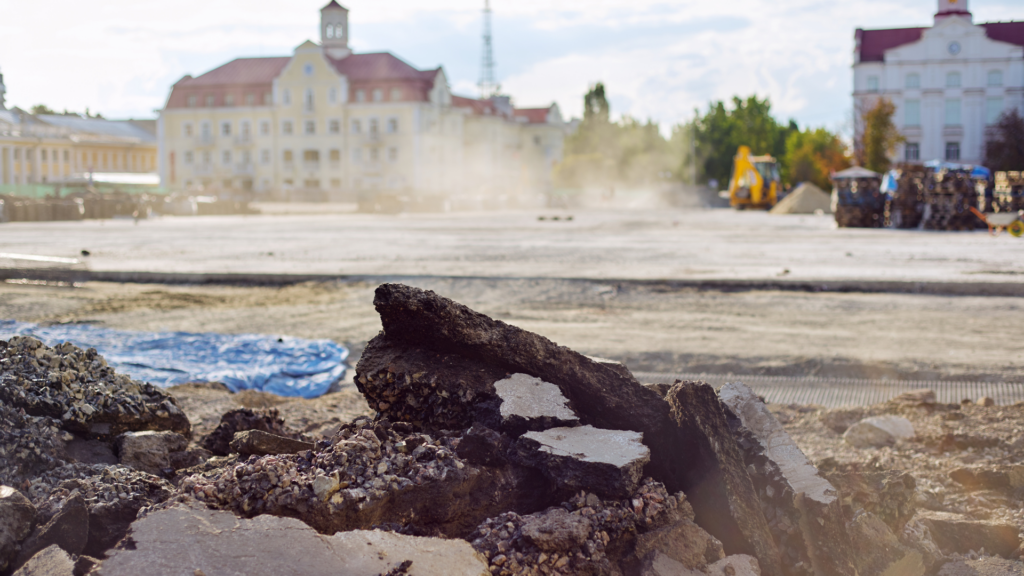Paving 101: When is Full Depth Asphalt Replacement Necessary?

There are more than 2.7 million miles of paved roads in the United States. Approximately 94 percent of them are paved with asphalt. This does not include the parking lots, railways, airport runways, sidewalks, and other areas paved with asphalt.
Asphalt has as many installation and repair techniques as it does applications. Which one is best depends on the unique circumstances of the job.
This article covers the basics of asphalt paving. It includes info on full-depth asphalt replacement and the advantages it affords. Keep reading to learn what solutions may be right for your project.
Asphalt Restoration Basics
Asphalt restoration can be broken down into three main categories. These are maintenance, minor repairs, and full-depth replacement.
Preventative maintenance is important to extend the life of your asphalt surface. This includes projects like installing a seal coat, which can not only extend the life of your asphalt but keep it looking great longer.
Minor repairs are for surface-level cracks and potholes. It also includes partial-depth patches. This involves removing whole sections of the surface and repouring them.
Full-depth asphalt replacement involves removing the entire existing asphalted area and replacing it. It is a more in-depth process, but is necessary in some situations.
When Is Full-Depth Asphalt Repair Necessary?
As mentioned, asphalt maintenance should be ongoing. If nothing else, resealing the surface every three or four years can go a long way to prolong functionality and aesthetics.
Often, asphalt repairs are suitable. It is an effective, economical option for many circumstances. These include minor cracks and asphalt raveling.
Keep in mind the decision to do minor repairs (versus full replacement) depends on the age of the asphalt as well. What may seem like some minor cracks could be a symptom of a larger, underlying issue.
Full-depth asphalt replacement is needed when maintenance and minor repairs are not sufficient. Examples include extensive asphalt damage, “alligorated” asphalt, and major potholes.
Also, sometimes raveling is the result of deeper problems with the asphalt’s binding compound. In these situations, full replacement is the best option.
One of the main reasons to opt for full-depth asphalt repair is if the surface is more than 15 or 20 years old. While minor repairs may be possible, you may be putting a bandaid on issues that will continue to crop up.
What Are the Advantages of Full-Depth Repair?
The biggest benefit of full-depth asphalt replacement is that it gives you a new, intact surface. It fully restores the structural integrity of the entire area.
Also, while regular maintenance and repairs can be the most economical option, so can full-depth repair. If it is needed, a replacement will keep you from wasting money on repairs that need an overhaul. This can save you a lot of time and hassle, and help you avoid downtime when your parking lot or driveway is out of commission for repairs.
Schedule Full-Depth Asphalt Replacement Today
Now that you understand when full-depth asphalt replacement is warranted, you can proceed with confidence. An experienced contractor can further advise you on the best options for your unique project.
For almost 40 years, Preferred Paving Company has been providing Southern California with the highest quality commercial asphalt services available. We pride ourselves on exemplary customer service and excellent workmanship at competitive prices. Reach out to us today to schedule service.
